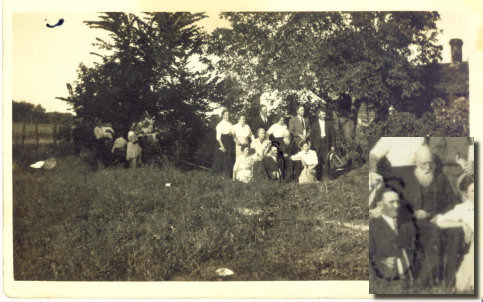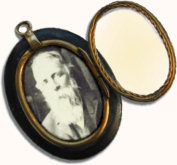|
After the sudden departure of John Henry,
the asylum was run by a private committee for the next several
months. They knew that a replacement needed to be chosen with
more care. None of the applicants were told the true nature of
the asylum since this could pose a security risk. All they
were told was that living within the asylum was a requirement and
that the patients were there under very special circumstances.
Once their candidate had accepted, then the truth would be revealed.
When the interviews were over, their decision was unanimous. Rasselas.
Rasselas was perfect for the job.
He was both a medical doctor and a psychologist, specializing in
conditions of melancholy. His intelligence was only preceded
by his kindness. Rasselas' first course of action was to change the
less than adequate living conditions for the patients. Broken
straw mattresses on the floors were replaced with firm cots and bed frames.
Meals were now served in supervised dining areas instead of the
seclusion of the patient's room. He even oversaw a new
sanitary filtration system to resolve the sewage disposal problems.
But perhaps his greatest achievement was his dedication to find a
cure for the patients. The seven research labs he organized on
the premises were fully staffed for almost a century. Later in his life he had a strong correspondence with both Sigmund
Freud and Carl Jung, hinting at the asylum's haunting dilemma in order to
obtain their opinions. I was quite disappointed to learn that
these letters were taken by a previous colleague well before I
arrived, so I was never able to read them firsthand. While
unsuccessful in finding a cure, Rasselas greatly advanced our
knowledge of the situation.
The photograph below, circa 1918, shows part
of the asylum's staff around Rasselas.
Rasselas is the elderly bearded man. I have no idea who the
younger gentleman is to left of him or why he is circled.
I should also mention that I know of only three photographs that
include some patients at the asylum, since photographing them was
usually strictly forbidden. This is
one of them. They can be seen on the left side of the picture.

I have only one other photograph of
Rasselas. It is within a locket that his wife wore over her
heart. Martha was a quiet nurse with a quick wit that captured
the attention of Rasselas soon after he arrived. They were wed
in the asylum's chapel. She followed him in death by two years
and asked that the locket be buried with her. Why it is here
in my office I do not know.

| 




